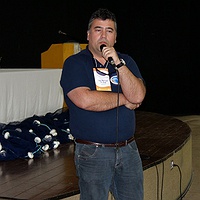
Coordinator: Prof. Dr. Luis Henrique da Silva Poersch
Lates:http://buscatextual.cnpq.br/buscatextual/visualizacv.do?id=K4728772U1
Participating Graduate Programs
Graduate Program in Oceanology
Graduate Program in Biological Oceanography
Graduate Program in Food Engineering and Science
Graduate Program in Health Sciences
Participating Countries:
Germany, United States, Australia, Spain, Belgium.
Description:
It promotes the training and specialization of students and researchers in the development of studies and actions that address the identification, mapping, prospecting, monitoring of the richness and biological and geological diversity of the oceans and their coastal zones with a special, but not exclusive, focus in the South Atlantic. This project will promote the following topics with missions and academic exchanges with centers of excellence abroad: 1) Bio / Geodiversity in different Brazilian sedimentary basins. These studies will make it possible to analyze geological and biological aspects in the generation of seafloor landscapes, oceanographic parameters, mineral deposits, influence on biodiversity, among others. The methodological approaches to studies of this magnitude, such as the use of advanced acoustic equipment, telemetry and methods of genetic / molecular biology and stable isotopes, are constantly improving and evolving; 2) Marine pollution and its threats to biodiversity and ecosystems. In this theme, understanding the flow and cycling of organic and inorganic contaminants and toxic blooms in coastal and ocean environments is fundamental. Among the polluting agents, plastics (from nano to macro) make up most of the anthropogenic solid wastes present in marine environments and represent one of the biggest environmental problems of the present time. The missions will focus on learning advanced analytical techniques, interpreting results, assessing impacts and new on-site collection methodologies; 3) Marine biodiversity and endangered species: the broad understanding of biodiversity and its relationship with the ecosystem is fundamental for the elaboration of effective conservation strategies; 4) Bioprospecting in coastal and oceanic ecosystems: in addition to providing food, marine species have enormous potential as a source of organisms, genes, enzymes and compounds that can lead to the development of new products relevant to a wide range of sectors of the economy, such as agriculture , pharmaceutical and cosmetics industry, biotechnology, nutrition, bioremediation, health, among others. In this sense, unlike the practices of simple collection or extraction of organisms in the environment, aquaculture allows the planned production of aquatic organisms with relatively constant composition / quality throughout the year.
Expected Benefits:
|
BIO/GEODIVERSITY AND BIO/GEOPROSPECTION IN COASTAL AND OCEANIC ECOSYSTEMS: EMPHASIS ON THE SOUTH ATLANTIC |
|||||
|
EXPECTED BENEFITS |
2019 |
2020 |
2021 |
2022 |
|
|
Missions Related to the Research Project |
3 |
4 |
3 |
- |
|
|
Grants linked to the Research Project
|
PDSE - Ph.D. sandwich (6 months) |
2 |
3 |
2 |
4 |
|
PDSE - Ph.D. sandwich (12 months) |
- |
1 |
- |
- |
|
|
Visiting Professor (0 months) |
1 |
1 |
2 |
- |
|
|
Visiting Professor (1 months) |
1 |
1 |
1 |
1 |
|
|
Junior Visiting Professor Abroad (3 months) |
- |
1 |
- |
- |
|
|
Senior Visiting Professor Abroad (3 months) |
- |
1 |
- |
- |
|
|
Senior Visiting Professor Abroad (6 months) |
- |
1 |
1 |
- |
|


